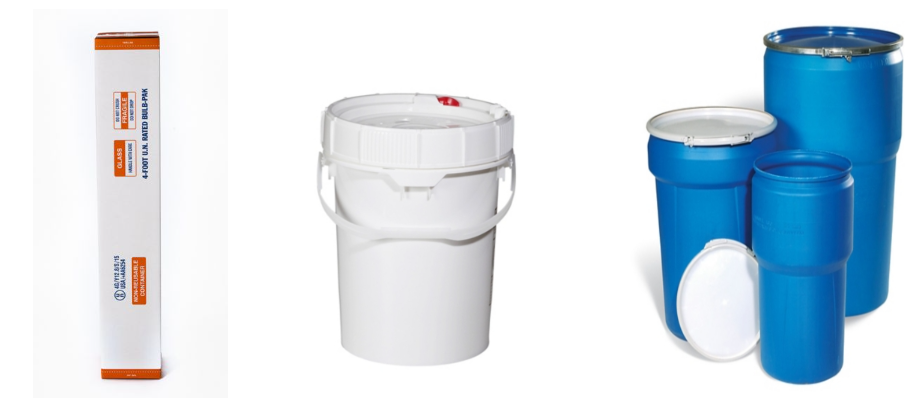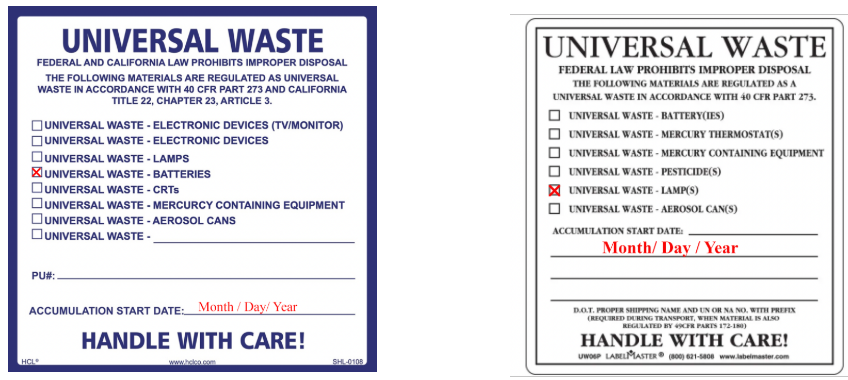Universal waste refers to specific categories of hazardous waste that are commonly generated in various industries and institutions, including SFSU. Universal waste includes items like fluorescent lamps, batteries (e.g., lead-acid, nickel-cadmium batteries), electronic devices (e.g., old computer monitors, TVs, cell phones), and sealed mercury-containing equipment (e.g., thermometers, thermostats). Universal waste is regulated separately from other hazardous waste due to its widespread generation and includes streamlined regulations to encourage recycling and proper disposal. Characteristics of universal waste include being common, potentially hazardous, and suitable for recycling.
Universal Waste Information
At SFSU, examples of universal waste typically include:
- Fluorescent lamps and bulbs
- Batteries of various types (e.g., lead-acid, nickel-cadmium, lithium-ion)
- Electronic devices like old computer monitors, televisions, and cell phones
- Mercury-containing equipment such as thermometers and thermostats
Environmental Health & Safety: Dipak Janda (Dk)
Email: Dipakjanda@sfsu.edu
Telephone: (415)-542-8046


Universal waste can be accumulated on-site for up to one year from the date accumulation started.
Every two weeks, unless additional pick ups are needed.
Waste Management collects municipal waste daily throughout campus and the waste disposal vendor comes every 9 business days.
When universal waste leaves university property, it is typically transported to specialized recycling facilities or hazardous waste disposal facilities depending on the type of universal waste.
Contact Information
For further information about the Universal Waste Management Program at SFSU or how you can get involved, please contact:
Environmental Compliance Specialist
Dipak Janda (Dk)
- Phone: (415) 542-8046
- Email: dipakjanda@sfsu.edu